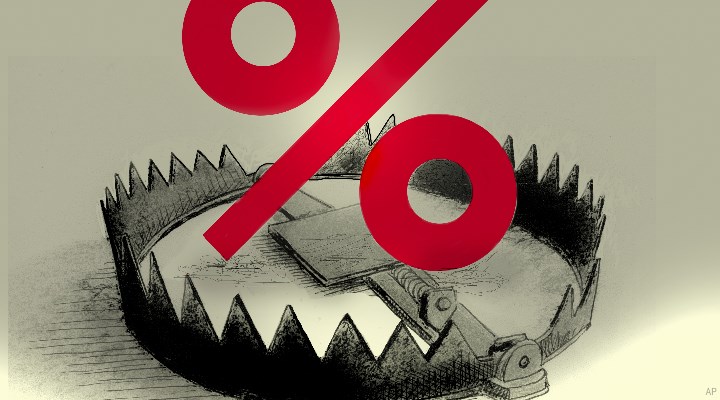Ruth Saldanha: Canadian banks are soon going to announce their latest results. So, what can we expect this time around? Eric Compton, Morningstar Equity Analyst, is here with us today.
Eric, thank you so much for being here today.
Eric Compton: Thanks for having me.
Saldanha: Now, some in Canada are saying that this quarter is going to be a dividend bonanza for Canadian banks. Now, I know that you don't publish a quarterly dividend forecast, but you do have an annual one. So, what can we expect from Canadian banks this quarter?
Compton: Yeah. So, we're definitely expecting a very healthy dividend growth this year for the Canadian banks. So, the biggest growth we think is going to come from Bank of Montreal and National Bank of Canada, where we're expecting nearly 30% growth in dividends on an annual basis, and a lot of that is due to the fact that they had to hold dividends constant during the pandemic due to some of the regulatory updates. And so, now that those regulatory restrictions are removed from the sector, they're able to increase these dividends, increase their dividend payout ratios, plus, you're going to have some earnings growth on top of that. And so, yeah, we think Bank of Montreal, National Bank of Canada can reach almost 30% annual dividend growth.
For the rest of the group, the other four Canadian banks we cover, we think it's going to be something like mid-teens growth. So, when you look at like a normal growth rate of something like a mid-single-digit, mid to upper-single-digit, that is definitely healthy dividend growth for this year. So, yeah, we definitely agree with that outlook.
Saldanha: So, one thing that has been worrying investors for a while is the rising interest rates. Now, especially for the Canadian people, there's going to be some mortgage impacts. How are you reading this entire situation right now?
Compton: Yeah. So, interest rates and consumer debt are definitely a topic that comes up a lot, particularly for Canada. So, the Canadian consumer tends to have higher debt levels than, for example, the U.S. consumer. They do balance that out with low interest rates. So, as Canadian debt levels have gone up over the years, the interest burden on the Canadian consumer has actually remained fairly steady. So, increasing debt levels but lowering debt rates. So, those are essentially balancing each other out over the past several years. And I think we're going to start to see a reversal on that where interest rates are starting to come up. We think they're going to continue to come up. The Bank of Canada is going to likely raise by another 50 basis points in June. So, yeah, interest rates are going to continue to go up. And we think that interest burden is going to start to trend back up for the Canadian consumer. Something to definitely keep an eye on. We don't expect any sort of – anything too drastic like a financial crisis. Instead, we forecast more like a decrease in future demand. And so, as more earnings have to go to service that debt, you're going to see less consumption, which is in the current environment exactly what the Bank of Canada is trying to accomplish, where you have certain supply constraints, inflation is a little too high. So, they want to bring that demand back in a little bit, and that's exactly what we think is going to happen.
Saldanha: So, from the banks' standpoint, are there any risks that you're keeping an eye on? Because overall, in general the markets have been a bit volatile. Do you see Canadian banks seeing any specific risks and what is worrying you about them right now?
Compton: Yeah. So, there are definitely risks to keep an eye on, and a lot of it relates to interest rates and debt levels. And so, as central banks raise rates, such as the Bank of Canada, we're also watching the same thing in the U.S. with the Federal Reserve, it's going to put more pressure on consumers, more pressure on businesses, and economic growth is likely going to slow down a bit. You also have pressure from inflation that could hit spending capabilities for people as things get more and more expensive. And so, all those things increase recession risks. And I think that's the key risk everyone is worried about. We're keeping an eye on it. I think everyone else is as well. And so, it's going to be important to keep an eye on that. We think recession risks are increasing. It's not in our base case forecast just yet. We think if a recession does occur, it won't be anything too crazy. We think it will be a moderate recession, most likely if one does occur, and there will be a recovery eventually. But banks are macro sensitive. They are sensitive to the economic environment. Recessions aren't good for the economy or for banks. And definitely, a risk to keep an eye on. And if it does happen, we think the Canadian banks will still be fine, but there will be some short-term pressure on stock prices for sure if a recession does materialize.
Saldanha: Great. Thank you so much for joining us today, Eric. We'll definitely touch base again after the banks announce their results.
Compton: Absolutely.
Saldanha: For Morningstar, I'm Ruth Saldanha.





















